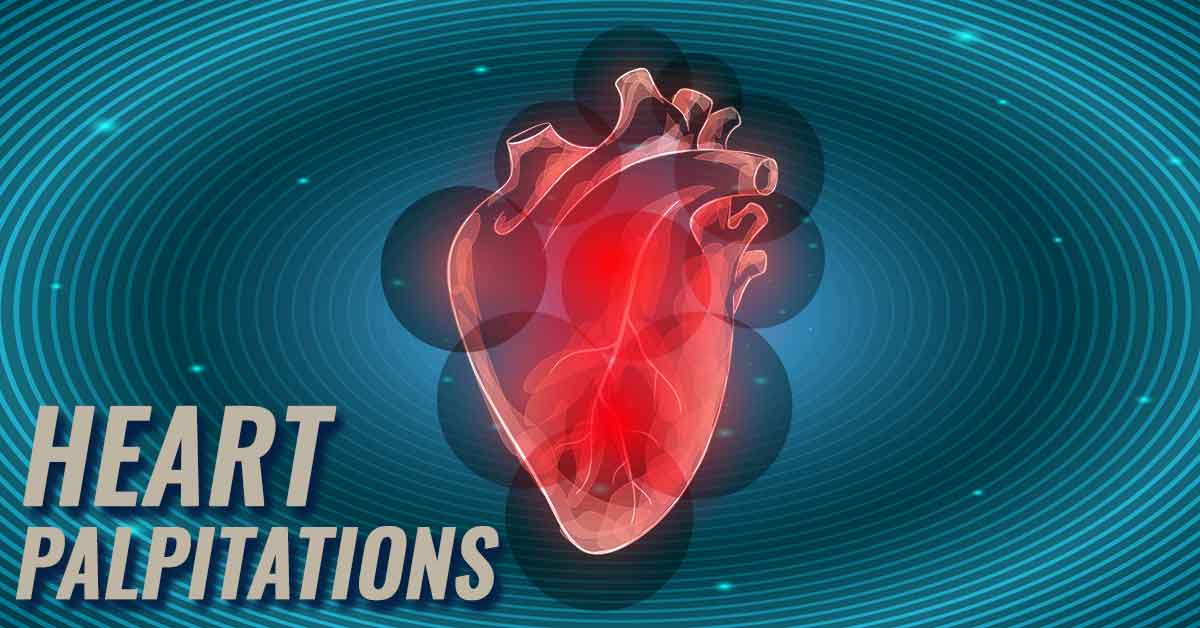Heart Palpitations:

Understanding the Fluttering Sensation, Causes, and When to Seek Medical Attention
Have you ever experienced a sudden sensation of your heart racing, fluttering, or pounding in your chest? These are known as heart palpitations, and while they can be disconcerting, they are not always a cause for alarm. Here we will explore heart palpitations, their possible underlying causes, when to consider getting an echocardiogram (echo), and when they may not be a cause for concern.
What are Heart Palpitations?
Heart palpitations are defined as the awareness of your heartbeat—when it feels irregular, rapid, or forceful. They can vary from person to person and may be felt as a skipped or extra beat, rapid thumping, or fluttering sensation in the chest. While palpitations can be unsettling, they are often harmless and can be triggered by various factors.
Common Causes of Heart Palpitations:
- Stress and Anxiety: Emotional stress and anxiety can stimulate the release of stress hormones, leading to temporary palpitations.
- Caffeine and Stimulants: Excessive consumption of caffeine, energy drinks, or certain medications can cause heart palpitations.
- Physical Activity: Intense exercise or sudden bursts of activity may temporarily elevate the heart rate, leading to palpitations.
- Fever or Illness: High fever and some illnesses can affect the heart rate, causing palpitations during the recovery process.
- Dehydration: Insufficient fluid intake can lead to an electrolyte imbalance, potentially triggering palpitations.
- Hormonal Changes: Fluctuations in hormones, such as during menstruation or pregnancy, can cause palpitations in some individuals.
- Medications: Certain medications, including asthma inhalers, thyroid medications, and decongestants, may cause palpitations as a side effect.
When to Get an Echocardiogram (Echo):
An echocardiogram, or echo, is a non-invasive imaging test that uses sound waves to create detailed images of the heart. Your healthcare provider may recommend an echo if:
- Palpitations are Frequent or Severe: If heart palpitations are frequent, prolonged, or accompanied by other concerning symptoms like chest pain or shortness of breath, an echo may be ordered to assess the heart’s structure and function.
- You Have Underlying Heart Conditions: Individuals with a history of heart disease, heart murmurs, or arrhythmias may need an echo to monitor their heart health and evaluate any changes.
- Family History of Heart Conditions: If you have a family history of heart disease or cardiac abnormalities, an echo may be performed to assess your heart’s health and identify potential risk factors.
When Not to Worry:
In many cases, heart palpitations are benign and not indicative of any serious underlying condition. However, there are certain instances when you may not need to worry:
- Occasional Palpitations: Isolated episodes of palpitations that last for a few seconds or minutes are often harmless, especially if they are not accompanied by other symptoms.
- Palpitations Triggered by Lifestyle Factors: If you notice that your palpitations are linked to specific factors like caffeine, stress, or physical activity, making appropriate lifestyle adjustments may alleviate the symptoms.
- No Other Symptoms: If palpitations occur without any chest pain, shortness of breath, dizziness, or fainting, they are less likely to be a cause for concern.
Heart palpitations can be alarming, but in most cases, they are not dangerous. Understanding their potential causes and when to seek medical attention is essential for maintaining heart health. If you experience frequent or severe palpitations, have a history of heart conditions, or notice other concerning symptoms, consult your healthcare provider promptly. Remember, listening to your body and seeking appropriate medical advice can provide peace of mind and ensure your heart’s well-being.
